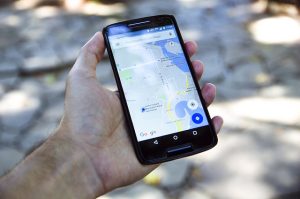Caller ID spoofing has emerged as a significant concern within the telecommunications field, allowing callers to deceptively display numbers or names that are not their own. This practice is used for both legitimate and illicit purposes, including scamming and phishing. Robocall lawyers in Florida have become key figures in addressing this issue, utilizing their expertise in laws like the Telephone Consumer Protection Act (TCPA) to provide legal representation to those harassed by these unwanted calls, particularly in high-impact areas like St. Petersburg. The state of Florida, with its comprehensive legal framework, offers robust protections against such deceptive calling practices, with both federal and state laws enforced by agencies and local authorities to uphold consumer rights. For residents facing spoofed robocalls, Florida's robocall law firms and attorneys are equipped to offer expert guidance and representation, ensuring individuals receive justice and possible compensation for their troubles. These legal professionals are instrumental in deterring unlawful conduct and holding offenders accountable within the state of Florida.
callER ID spoofing has become a pervasive issue, with individuals in St. Petersburg and beyond grappling with deceptive calls. This article demystifies the technology behind this phenomenon and examines its legal repercussions within Florida’s framework. Exploring the mechanisms of caller ID spoofing, we delve into how it operates and why it poses a significant challenge. Subsequently, we navigate the complex legal terrain surrounding this form of communication fraud, highlighting the roles and expertise of robocall lawyers and attorneys in Florida. For those affected by these unwanted intrusions, understanding the legal landscape is pivotal to seeking recourse and protecting personal communication rights.
Unraveling Caller ID Spoofing: Mechanisms and Methods

In the realm of telecommunication technology, Caller ID spoofing has emerged as a sophisticated method that manipulates the information transmitted to a caller’s device, displaying phone numbers or names other than the true originator’s. This deceptive practice can be employed for various purposes, ranging from legitimate uses such as business continuity planning to malicious activities like scamming and phishing. The process of Caller ID spoofing involves altering the Caller ID information sent with a phone call so that it appears as if the call is coming from a different number or entity. This can be achieved through a variety of methods, often utilizing software tools or services that allow users to change their outbound Caller ID presentation. These mechanisms are not inherently illegal; however, they are frequently exploited by fraudsters and telemarketers to evade detection and perpetrate crimes such as robocalls. In response to this growing issue, robocall lawyers and attorneys in Florida have become vigilant advocates for consumers, offering legal recourse against unlawful practices. Robocall law firms across the state are well-versed in the Telephone Consumer Protection Act (TCPA) and other relevant laws that govern robocalls and Caller ID spoofing, providing comprehensive legal services to those affected by such intrusions. In St. Petersburg, where the prevalence of these calls is particularly acute, residents can turn to local robocall attorneys for advice, representation, and remedies against unwanted and illegal robocalls. These legal professionals are instrumental in holding violators accountable and deterring future infractions, ensuring that consumers’ rights under the law are protected.
The Legal Landscape of Caller ID Spoofing in St. Petersburg, Florida

In St. Petersburg, Florida, the legal landscape surrounding caller ID spoofing is both complex and stringent, with robust measures in place to protect citizens from deceptive practices. The Telephone Consumer Protection Act (TCPA) serves as a federal foundation for combating unethical calling practices, including caller ID spoofing. It imposes strict rules on automated calls and texts, which has led to the rise of specialized legal professionals adept at handling such cases. Robocall lawyers and robocall attorneys in Florida are well-versed in the intricacies of this act and can provide effective representation for those affected by these illegal practices. The Florida legislature has also enacted state-specific laws to complement the federal regulations, further tightening the loopholes exploited by scammers and spoofers. Individuals who find themselves on the receiving end of a spoofed call may seek assistance from experienced robocall law firms in Florida, which are equipped with the knowledge and resources necessary to navigate these laws and pursue justice and compensation for damages caused by such infractions.
The enforcement of caller ID spoofing laws is primarily undertaken by federal agencies like the Federal Communications Commission (FCC) and the Federal Trade Commission (FTC), as well as state attorney generals. In St. Petersburg, local authorities work in tandem with these entities to safeguard consumers’ rights. The robust legal framework in Florida provides a clear pathway for victims of robocalls to seek redress, with the potential for significant penalties against offenders. Robocall lawyers and attorneys in Florida are at the forefront of this battle, advocating for individuals whose privacy and peace have been disrupted by these malicious calls. The legal system in St. Petersburg offers a clear avenue for those harmed by spoofing to seek recourse, with robust support from local robocall law firms that are committed to defending consumers’ rights and combating this pervasive issue.
Navigating the Law: Robocall Lawyers and Attorneys in Florida Provide Recourse







